MSI GE60 Review: Mainstream Mobile Maxwell
by Jarred Walton on July 17, 2014 5:00 AM ESTMSI GE60 General Performance
As I've commented already, the presence or lack of an SSD can dramatically alter the end user experience. In this case, the GE60 we're testing doesn't have an SSD and it can feel painfully slow when it comes to booting Windows, installing applications…or running PCMark 7. Versions of the GE60 with an SSD will of course be a different story, but I did run PCMark 7 and 8 on the GE60 and the scores are in the charts below. What you'll see is that PCMark 8 Storage as well as most of the PCMark 7 suite skew heavily in favor of SSDs, which isn't necessarily wrong, but it does make comparisons between HDD and SSD systems largely meaningless with these two benchmarks. Just remember: we're evaluating entire laptops, not individual components.
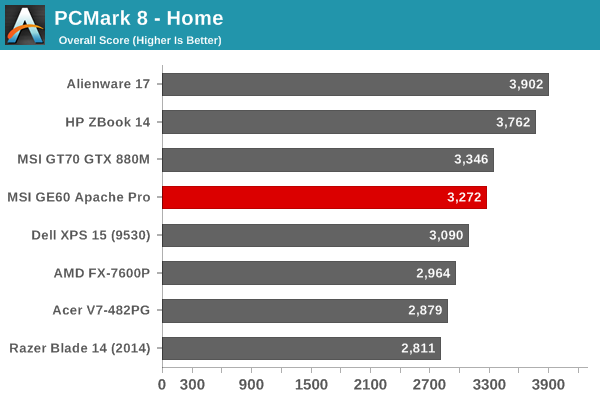
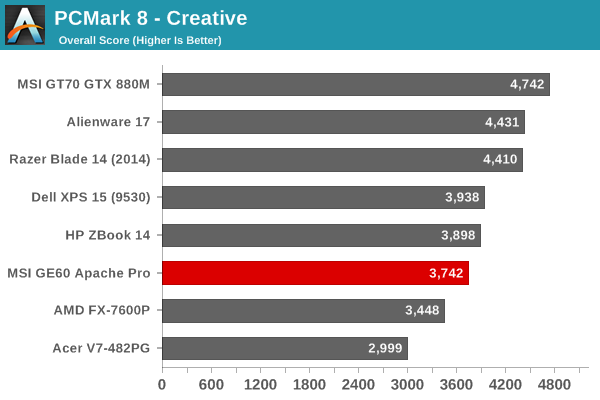
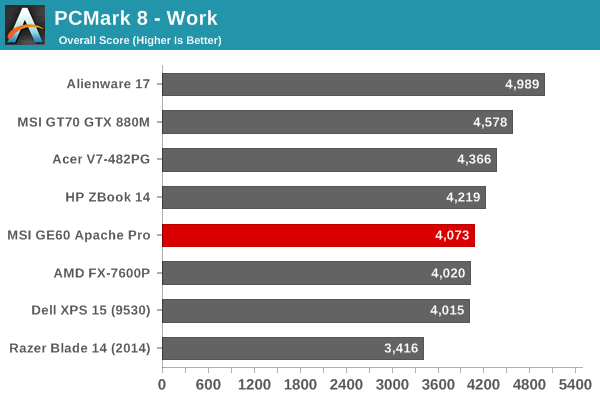
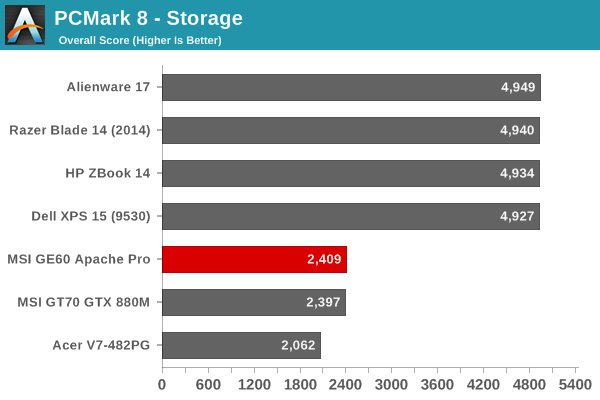
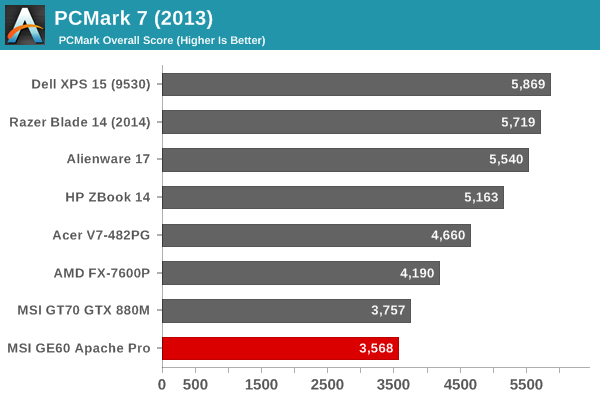
PCMark 8 apparently isn't as SSD biased on most of the tests, which is a bit odd to see. Or maybe Hitachi (who provides the HDD for the GE60 being tested) has done some special tuning to help this specific workload? Normally, about the only thing you can really glean from PCMark scores these days is whether a system is dual-core or quad-core, and whether or not it's using a pure HDD storage solution or something with an SSD (caching or pure SSD). Here, while the GE60 isn't the fastest at PCMark 8, it does beat several quad-core SSD laptops, and I'm not entirely sure why.
The Cinebench, x264 HD encoding, and 3DMark are basically component tests, so scores pretty much scale with the level of the hardware. Not surprisingly, everything falls where you'd expect, with the i7-4700HQ delivering good performance but trailing behind faster CPUs. 3DMark also more or less confirms the performance level of the GTX 860M. You'll also find results of WiFi throughput with several of the notebooks, though there's a huge amount of variance depending on your router, location, and other factors, so take the WiFi performance with a grain of salt. Here are the pertinent charts:
[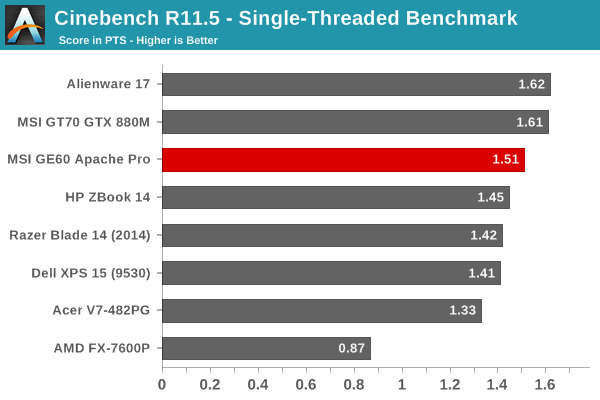
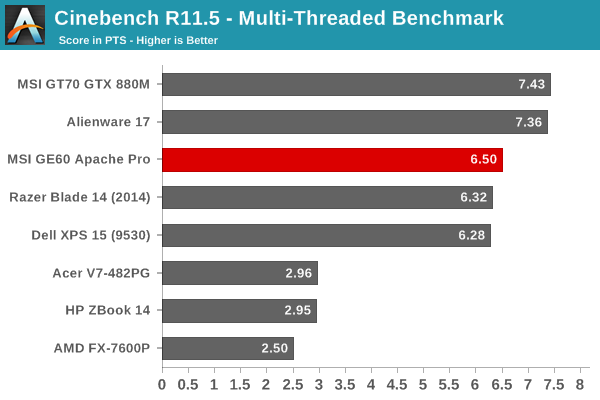
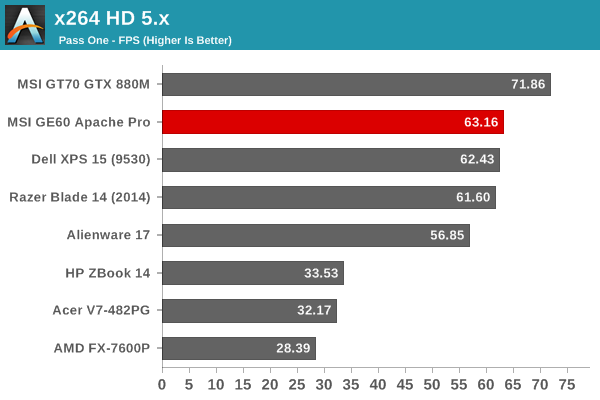
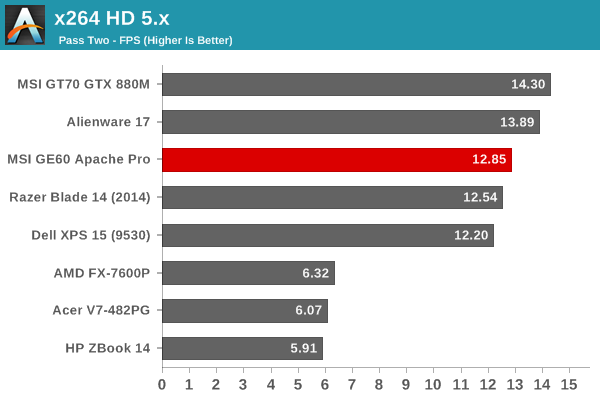
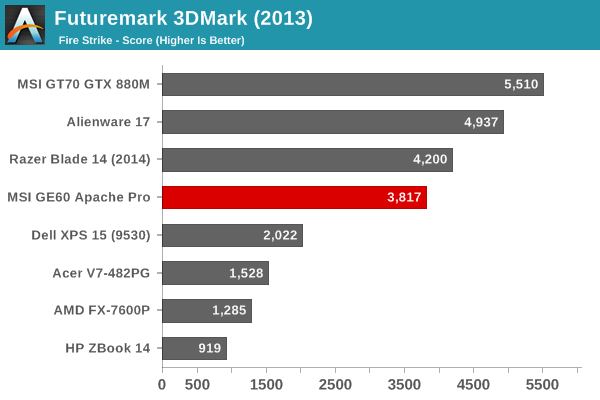
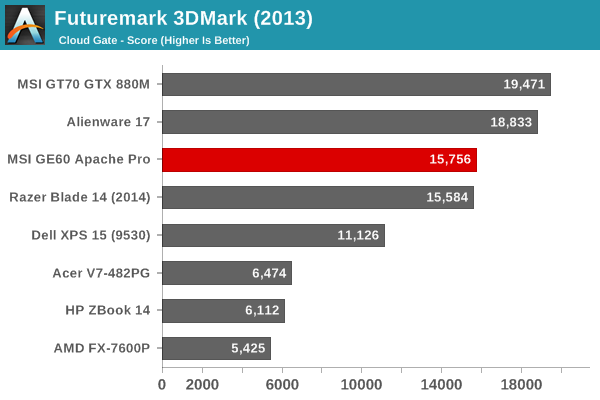
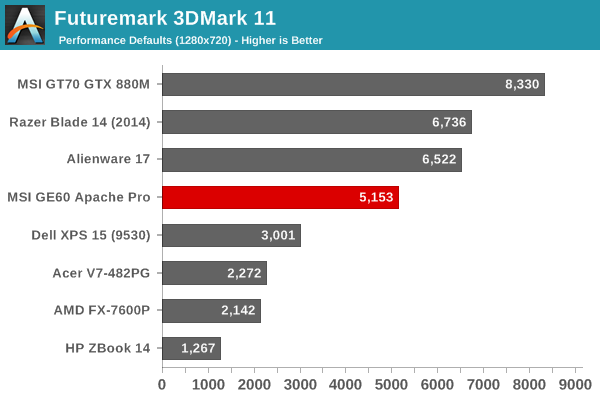
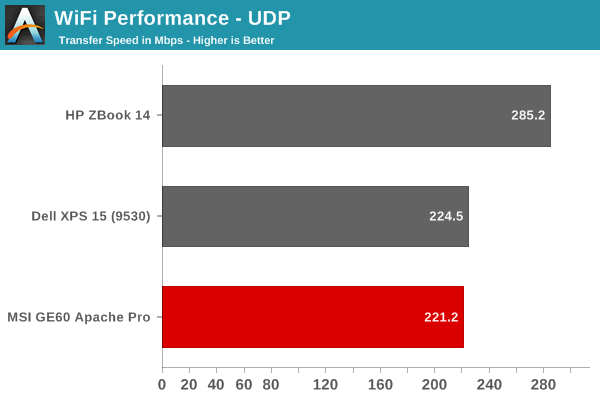










63 Comments
View All Comments
pierrot - Thursday, July 17, 2014 - link
Wheres that desktop 860? Preferably something that will fit in an ITX case!koekkoe - Thursday, July 17, 2014 - link
It's called 750 Ti.Anonymous Blowhard - Thursday, July 17, 2014 - link
It also comes in low-profile for those really tight spaces.odell_wills - Thursday, October 9, 2014 - link
I love it! /Odell from http://www.consumertop.com/best-laptop-guide/Samus - Thursday, July 17, 2014 - link
I run a 750Ti in my Haswell i5 gaming PC. Pretty impressive for a card that runs completely off the PCIe bus power. It runs BF4 at 1900x1200 always above 60FPS at a mix of Medium and High.I'd say its somewhere between a 560Ti and 660.
Frenetic Pony - Thursday, July 17, 2014 - link
The problem with Maxwell and desktop in general is that Maxwell is to GPUs what Haswell was to CPUs, an almost entirely mobile/battery life concentrated update. Which means if you're plugging something in just buy whatever because Maxwell isn't going to do you much better.smorebuds - Thursday, July 17, 2014 - link
Except for the mobile variants like the 860M, which is the entire point of the article you're commenting on. Just like with Haswell, for the same or better performance devices can be thinner, lighter, and last longer.smorebuds - Thursday, July 17, 2014 - link
And I realize you're not necessarily referring to mobile, but the analogy still applies to desktop. I think everyone would prefer a smaller, quieter, and less power-hungry box in their room.DanNeely - Monday, July 21, 2014 - link
With gaming desktops I suspect more people would turn around and spend all the increased performance/watt on more performance instead of fewer watts.Antronman - Thursday, July 17, 2014 - link
Well actually, the new mobile maxwells have far better performance, because they were able to put more cores into the gpus and clock them slightly higher due to the much lower TDP.Who's to say the same won't happen with desktop GPUs?